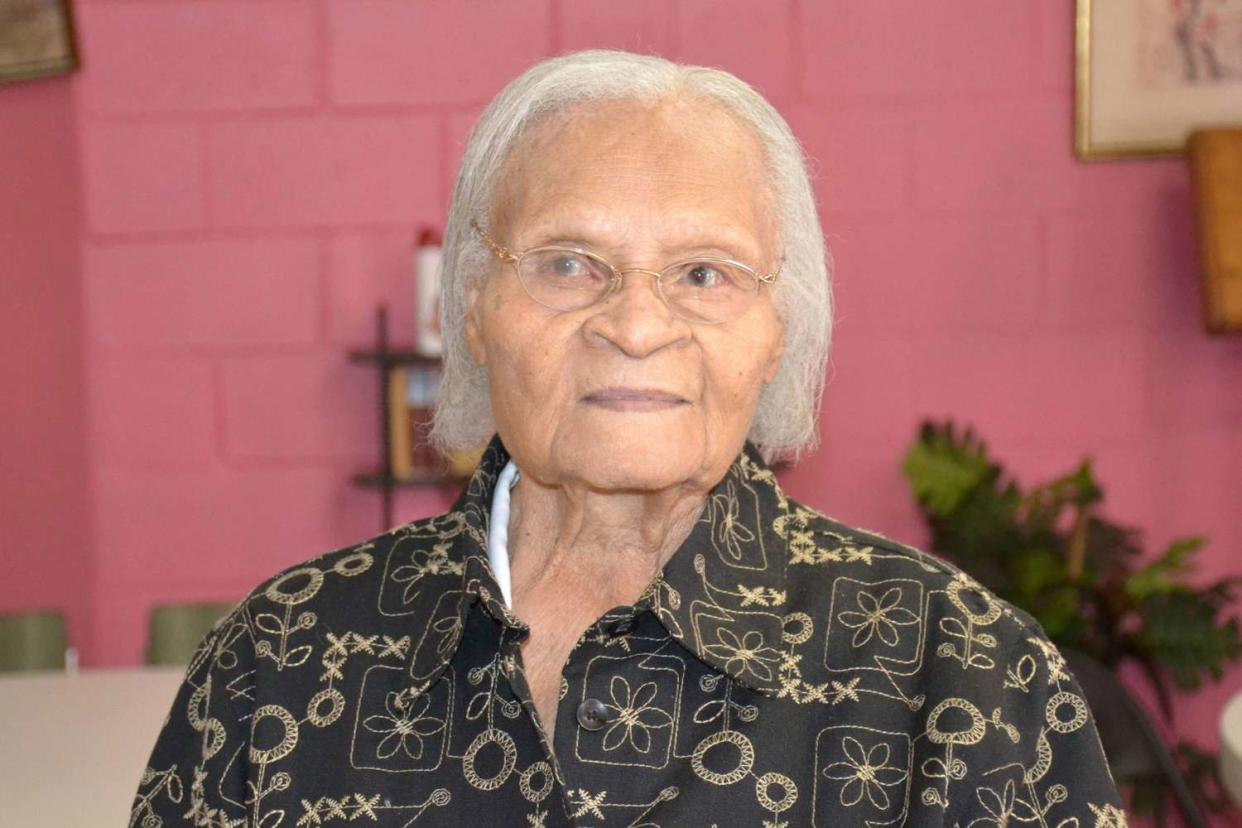Viola Fletcher, Oldest Living Survivor of Tulsa Race Massacre, Celebrates 107th Birthday

Oklahoma Oral History Research Program at the Oklahoma State University Library Viola Fletcher
Viola Fletcher is the oldest known living survivor of the 1921 Tulsa Race Massacre — and she recently celebrated a milestone birthday.
Fletcher, who was just 7 years old when tragedy rocked the Oklahoma city, turned 107 years old on May 5.
"We just do the things that are good for you," she told Oklahoma State University's Oklahoma Oral History Research Program in 2014 about her secret to longevity. "Sleeping and eating and exercising. It's no problem with me."
Fletcher and fellow survivor Hughes Van Ellis recently returned to Tulsa's Greenwood District to attend a panel discussion on the massacre ahead of its centennial, according to the OU School of Social Work.
Both Fletcher and Ellis are part of a lawsuit against the city of Tulsa for its part in the race massacre, the school said.
Over the last year, experts have been searching local cemeteries for victims of the massacre, which occurred in June 1921 in an area of the city called the Greenwood District. It was known for its affluent, African-American business district often referred to as "Black Wall Street," according to the Tulsa Historical Society and Museum.
RELATED VIDEO: Biracial Physician Assistant Pushes for 'Actionable Change' Through National Black PA Society
After a young Black man who rode in an elevator with a White woman was arrested and allegedly accused of sexual assault, an "inflammatory" local news report sparked a confrontation between Black and White mobs, and soon, White rioters had descended upon the Greenwood District to loot and burn the area.
When all was said and done, 35 city blocks were destroyed by fire, 800 people had been injured and 36 people were dead, according to initial reports, though historians now believe as many as 300 people died.
RELATED: Excavators Find Human Remains Near Site of 1921 Tulsa Race Massacre
Though Fletcher said in the oral history that she "was real young" at the time and had few memories of the massacre, she's been a visible presence in the renewed fight to recognize and acknowledge the tragic history.
On Tuesday, she took part in a press conference alongside members of the 1921 Race Massacre Centennial Commission to fight HB 1775, a bill recently signed by Gov. Kevin Stitt that would ban schools from teaching certain topics about race and gender, according to Fox affiliate WXXA.
"Telling the story of 1921 requires confronting and sharing the facts about this horrific period in Oklahoma's and Tulsa's history. It also demands an exploration of the underlying causative factors," the commission reportedly wrote in a letter. "HB 1775 chills the ability of educators to teach students, of any age, and will only serve to intimidate educators who seek to reveal and process our hidden history."
In the 100 years since the tragedy, Fletcher has lived a full life, according to her oral history.
RELATED: Russell Westbrook Will Executive Produce a New Series About the 1921 Tulsa Race Massacre
The Oklahoma native married Robert Fletcher in 1932, and moved to California with him during World War II to work in the shipyards, where she was an assistant welder and laid slabs of steel to build ships.
After the war, the couple settled in Bartlesville, Oklahoma to raise their three children, and Fletcher eventually retired from work at age 85.
"I'll say that I'm Black and I'm proud," she said. "Nothing you can do about who you are, regardless of what you look like… We have the same red blood as other people."

 Yahoo Movies
Yahoo Movies 
